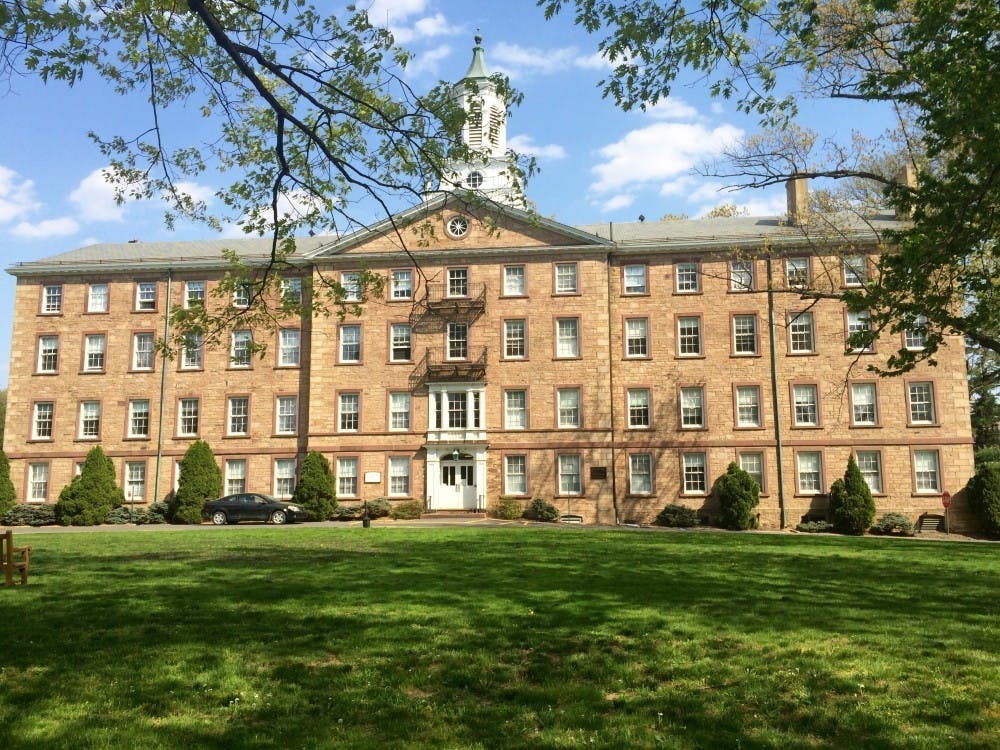The ongoing controversy surrounding the municipality of Princeton’s purchase of Westminster Choir College came to a head at the Monday, Sept. 23 Princeton Town Council meeting, where testimony by former choir teachers, orchestra members, and Princeton University directors highlighted fears and anxieties around the purchase. The Council moved forward with the purchase despite these fears.
The historic choir and conservatory, most of whose constituents were moved to Rider University’s Lawrenceville campus in 2020 after a failed sale in 2019, is the subject of multiple litigation cases. At Monday’s council meeting, the municipality’s attorney Steve Mlenak addressed what he called the “white elephant in the room,” expressing that “regardless of any other claims, the right of the municipality to purchase the property either through private sale or condemnation is not impeded,” referring to current litigation, legal precedent, and prior opinions of the attorney general.
Stakeholders in the choir and conservatory recognized a need to balance the importance of the facility with the need for a sustainable business model. Antonio Merolli, a member of Westminster Community Orchestra, said that it “seems wise and cost-effective for the community to keep existing facilities in place and alive … Music history, music facility, and music people are an asset for Princeton, not a liability.”
Amy Wolf, who has taught at Westminster Conservatory since 1978, said that “if the best course of action for the Conservatory is to be acquired, I’m ok with that,” but that she wants the Conservatory to remain on the property. Wolf said she has “recurring nightmares that I will wake up one day and see a 22-acre soccer field.”
Other community members were more cynical about whether the Council’s purchase will take into account the importance of music facilities.
“We at the conservatory are not easily convinced,” Linda Mindlen, a voice teacher at Westminster, said. “The choir college was a gleaming asset for all of Princeton,” she said, although she added that the “choir college is not the school it used to be,” attributing this decline to the purchase and subsequent moving by Rider.
Similarly, community member Joshua Zinder said he doesn’t trust the school district, “who have demonstrated they are poor stewards of the structures in their hands,” to maintain the music facilities. He added, “I do not know that this acquisition is the right thing to do, but I am aware of the potential. I am fearful of giving the school district more of Princeton’s architectural legacy to squander.”
Mindlen also emphasized the multigenerational nature of Westminster’s teaching and its centrality in enhancing the region’s music education, saying, “we are at the core of creating kids who are feeding into their school music programs, and that makes the quality of school music programs fabulous.” She called for “solid assurance and not just talk” about the preservation of the conservatory.
Some community members were weary of what they saw as vagueness around why Princeton wants to purchase the college. Princeton local Henry Singer said he wanted a clearer “articulation of an unmet need or problem” to justify the purchase and that he “looks forward to [the council] stating specifically what [they] would do with the land.”
Princeton resident Maria Juega also expressed concerns about transparency, asking for specific details around the Municipality’s purchase plans, bond ordinance timeline, and financing. She asked whether the council had considered appointing a task force to keep the public informed. Councilmembers later affirmed there would be processes for public and stakeholder input throughout the acquisition process.
A public hearing related to the bond ordinance and financing of the facility is scheduled for Tuesday, Oct. 8.
Concerned with the historic nature of the site, local historian and preservationist Clifford Zink congratulated the council for “this bold and very important initiative for the future of the town,” but recommended that the town proceed in designating it as a historic site. He urged the town to “be creative in repurposing the site,” and asked the council to “engage the community very seriously in the development of the site.”

Councilmember Mia Sacks noted that the “most important thing that we all want to see happen is that this property be used for the benefit of residents of Princeton, the public, and that the fate of this property is not determined by an external entity … Our interest here is that this property belongs to Princeton’s public.”
Councilmember Michelle Lambros acknowledged the concerns expressed at the meeting, saying, “we are hearing some concerns, comments, and a lot of good questions. We will have a robust planning process with many stakeholders.”
Councilmembers Leticia Fraga and Sacks closed the meeting with enthusiasm. Fraga said that she was excited by the “significance of the property,” adding, “I am eagerly looking to collaborate with stakeholders and ensure that we collectively identify uses for the site that will benefit the public for generations to come.”
Sacks said that the purchase represents a “once in a lifetime and true generational opportunity.” She connected it to Princeton’s continued growth and development plans, saying that with “housing comes the need for public facilities, educational and musical.” Construction and affordable housing have been at the forefront of council discussions around Princeton’s future.
Sacks concluded, "Monday’s meeting was a “historic meeting for all of us.”
Abby Leibowitz is a senior News writer for the ‘Prince’ from Silver Spring, Md.
Please send any corrections to corrections[at]dailyprincetonian.com.








